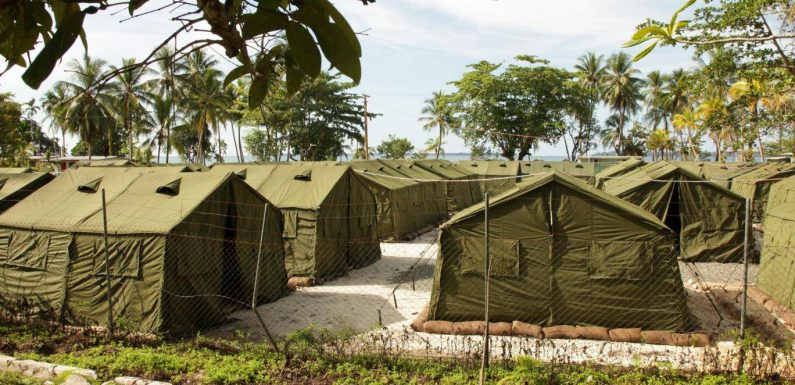

This is the holiday season, but here’s a modern dilemma – should our choice of destination be informed by local politics? These days, we’re encouraged to travel ethically – offsetting plane travel and fuel consumption, spending our cash supporting local businesses, and blending in with the customs and culture. Now, should we add another choice to that ethical list – is it acceptable to holiday in places that tolerate human rights abuses?
Myanmar, for example, and Saudi Arabia – but what about Australia? Aussies are famous for their hospitality, so – while visiting friends in northern New South Wales – I was surprised to read the following message in the local paper: “If you are on holiday here please don’t come again – because some people can’t leave.” The ad highlighted the plight of the hundreds of detainees currently held against their will on Nauru and the Papua New Guinea Island of Manus. The Australian government, determined to stem the flow of arriving by boat, is refusing to allow them to enter the country.
There have been as many as 2,000 people detained in camps on the two islands, with currently around 650 left, refused entry to Australia and fearful for their lives if they return home. Recently, New Zealand offered a home to 150 of them, but – outrageously – the Australian government spurned the offer, claiming it would only encourage more boat people to come. President Obama offered to allow several hundreds to enter the US, and although Trump tried to renege on the deal, he has less than 100 in total.
The ad telling me to go home has a point – the treatment of these refugees is shocking, and conditions in Manus and on Nauru leave a lot to be desired, with allegations of sexual assault, brutality and self-harming. There is a lack of a long-term plan from the authorities, in spite of a high-profile campaign on social media titled #LetThemStay, with prominent Australians such as Russell Crowe describing the camps as “a nation’s shame”. The government’s “Pacific Solution” was devised in desperation, and Prime Minister Malcolm Turnbull has done nothing to bring it to a humane conclusion, using vital foreign aid to Papua New Guinea and Nauru to bribe those regimes into continuing to host the camps.
Some of the detainees have been in this limbo land for five years, but just as Australia took forever to approve of gay marriage, so it seems to be just as reluctant to grant fellow humans some rights in this vast country full of empty space.
Ironically, tourism is important to the New South Wales economy, particularly along the coastal areas, but foreigners are in the minority. And if we started to apply this kind of rationale to all our potential holiday destinations, where could we visit with a clear conscience?
Take the UK, for example. According to the Refugee Council, in the year to June, 27,819 asylum seekers and refugees were held in detention centres in the UK. According to official figures, more than half are held for less than two months, and only 1 per cent for over a year – but that is more than 270 people. In spite of saying children would no longer be locked up, 48 were held during this time – and conditions in our detention centres remain a cause for concern.
Recently, a Panorama highlighted the brutality and shoddy treatment of detainees at Brook House, near Gatwick Airport, which contains people refused asylum, foreign nationals who have completed jail sentences, and visa overstays – all people the Home Office wants to dump somewhere else, just like the people on Manus and Nauru. After the BBC programme, nine officers were suspended and an inquiry is underway. There have been allegations of sexual assaults at Yarls Wood.
After Brexit, the way that the UK treats refugees and asylum seekers will be part of our national identity. Having sat through the harrowing scenes in the award-winning BBC series Exodus, I do not want my country to be blighted in the same way that Australia’s image has been tarnished by Manus and Nauru. The second series of the programme followed dozens of refugees slowly attempting to make their way across Europe to a new life. They were articulate and dignified, as they trudged for hundreds of miles, encountering barbed wire, packs of ferocious dogs and hostility – scraping together makeshift shelters out of rubbish and donations. Their positivity in the face of rejection was utterly moving.
Every day, dozens of desperate people arrive in the UK, stowed in cars and trucks. Children routinely escape from processing centres, sought out by trafficking gangs. The UK has no time limit for someone held in detention, and has the lowest rate of asylum approvals in the Big Five EU nations (Italy, France, Spain and Germany). Asylum seekers are only allowed to work after they have been waiting to hear about their status for 12 months, and many exist on just £5 a day. Isn’t it about time that we asked some tough questions about the treatment of detainees in the UK? The Germans and French have a far better track record than we do – when it comes to ethical tourism, Britain isn’t necessarily a great choice of destination.
courtesy=independent.co.uk

